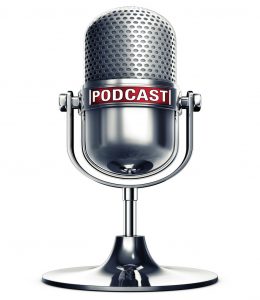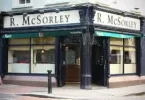What can we expect from consumer behaviour coming out of lockdown?
 It may sound trite to say that, with Covid-19, the eating and drinking landscape has completely changed but consumer behaviour was charting a change in direction, setting a new course in pubs and bars long before Coronavirus struck.
It may sound trite to say that, with Covid-19, the eating and drinking landscape has completely changed but consumer behaviour was charting a change in direction, setting a new course in pubs and bars long before Coronavirus struck.
The pandemic merely accelerated the blurring of boundaries between what bars, restaurants and off-licences offer. So how can businesses adapt and re-invent themselves? How are they to recreate that “pub experience” in this ‘New Normal’ where we’re all feeling our way?
Drinks Industry Ireland’s podcast on the subject heard from Behaviour & Attitude’s Maggie Matthews, who ran the weekly qualitative Lockdown Diaries at B&A and who’s been reviewing how consumers feel about returning to a number of different areas. She’s joined by MCCP’s Senior Strategist Michael Rekab who made a presentation at an MCCP trends event recently.
Consumer confidence
There’s a need to address consumer confidence in the ‘new normal’, believes Michael.
“We found that on the subject of pubs re-opening consumers said, ‘We need somewhere safe to socialise but we really miss our friends and the pub’.”
Everyone wanting to get out has to contrast this against their safety in doing so.
“Due to the virus we’ve been trained to look at other people as potential spreaders,” he said, “So are they asking to return to the pub? Yes! But they want to do so in safety”.
The majority of those MCCP questioned had no wish to visit the pub in the first week of opening but that majority also said ‘yes’ to visiting a pub in the first month following re-opening.
“This played off in every demographic,” he added.
Tensions were more prominent on safety concerns in the older cohorts while the younger cohorts appeared less concerned about safety to themselves directly, but lots did worry about spreading the virus to others. Nevertheless, they were more positive and eager to get out to the pubs.
Restoring confidence
But the rural pub customer presents a different demographic altogether which Maggie reckons to be a huge challenge.
“A lot has to be done in terms of making people feel safe and secure,” she said, “A lot of this comes down to appearances, optics – the kind of theatre around making people feel safe. There’s a need for very visual markers such as hand-sanitisers and screens etc which can be useful in clearly signalling to customers that their safety is being prioritised.
“Word-of-mouth will be a really huge factor in making people feel safe and confident about returning.
“Pubs should be identifying their ‘early adopters’, their risk-takers and the people who’re going to be first through the door, giving them a great experience and encouraging them to go forth and talk about that experience to everybody else.
“Nobody really knows what it’s going to be like… and we’re a bit unsure of what the experience looks like, how we’re supposed to behave – and that sense of uncertainty makes us hold back.”
So the more good experiences are reported back, the sooner others will feel confident to come out.
Importance of clarity in communications
Clarity is really important with all the new behaviours and rules being asked of us. They’re very different to what we experienced before and that’s no different in the pub setting where customers need to be very clear about what’s expected of them in entering the pub in this ‘new world’. But it’s also about being very clear about what the publican and the pubs themselves are doing to ensure that their own safety and that of the customer is paramount. Demonstrating actions taken in this direction can be some of the building blocks for a successful atmosphere because people come to the pub to relax and let go of the pressures of life for a couple of hours so knowing how to behave is fundamental to that.
But equally the pub is “hospitality, not hospitals” as Michael heard someone say – and that’s really important too, “….. so, yes, signalling around hand-sanitisers and hygiene in general is crucial but it’s also important to be welcoming and understanding that the new behaviours are difficult for people to adopt – and to understand that people are there for a good time and so to not come down heavy on people but create a dialogue between customers and publicans around how they need to behave in order for everyone to have a good time.
“That’s about having the right signals but not being too restrictive, not having screens between every single seat but doing just what needs to be done, which is to create a distance around things and to communicate with people clearly.”
Consumer discomfort
Michael believes from speaking to customers that there’s a lot of mistrust of other people, particularly amongst older groups who don’t trust the behaviour of younger groups and this will impinge on their pub experience and hold them back from going to the pub, he says.
They want reassurance that they’ll not be in danger of getting the virus.
Older people seem to want a quieter, more spaced-out experience. They’re mistrusting of others not respecting that.
Publicans and suppliers need to find a way to service the needs of both older and younger customers.

“Social Distancing makes hanging out at the bar and chatting with strangers impossible” – Maggie Matthews.
Younger customer needs
Younger customers are most concerned that the pub “atmosphere” will be changed now that the possibility of spontaneously interacting with strangers outside one’s group of friends seems less likely.
“In the short term that will be a difficult area to crack for publicans” said Michael, “but as demographics get older there are opportunities there to create more low-key safe atmospheres as we go forward.
“The younger cohorts could also maybe ‘reframe’ the pub as somewhere that they could come in for a couple of drinks with their close friends earlier in the evening and then move on to be in line with those restrictions around time and Social Distancing etc”.
Reimagining the post-Covid bar experience
So if ‘hanging out’ at the bar and meeting strangers has gone, how can pubs refocus their customers’ attention?
The famous Irish pub experience as we know it is not possible in its entirety today.
“Social Distancing makes hanging out at the bar and chatting with strangers impossible,” stated Maggie.
Some of the reports she’s getting from consumers indicate that if customers go in and try to recreate the experience that they know, they’re going to be disappointed.
Therefore the post-Covid bar experience has to be re-imagined.
“Some of the key experiences that would have defined the Irish pub experience – hanging out at the bar with the craic and banter with the barman – and at the end of night, meeting up with friends and strangers on the dancefloor – that’s just not possible to have in the current time.”
So re-imagining the bar experience to be the best it can be now involves putting focus on different aspects of the bar experience and how best to communicate that.
It’s about how the experience can evolve in the current situation.
“Now it’s less about the intimacy with strangers and acquaintances but the current experience can be about intimacy, fun, craic, banter with friends at the table.”
The focus and energy has therefore spread out from the central bar area to re-focus around tables.
A lot of this will be down to bar & waiting staff being able to build atmosphere and fun at the table.
Indeed, the table has now become the theatre and space for brands to ‘play’ in – one of the key aspects of the new experience.
Rather than looking up to the bar, customers will be looking horizontally at what’s going on at other tables in terms of brand affinity, she explains.
B&A’s consumers have been saying that the role of the bar staff will be very important going forward. Their ability to manage that is going to be really significant.
“It will fall to them to help build the atmosphere, to encourage the banter and craic but at the same time to manage it when it gets ‘out of hand’,” she says, “Finding that sweet spot between relaxed enough to have fun but not too relaxed that we forget ourselves altogether – the bar staff will have a huge role in maintaining and managing that and making sure that people have a really good evening.”
Pre- & post-pub drinking
Unsurprisingly perhaps, Maggie had found that a two-hour time slot was “not most people’s idea of a great night out”.
Consumers therefore had a desire to lengthen the night.
We’re already familiar with pre-drinking but we’re going to see a lot more of it now, she predicts.
That 50% of those questioned by B&A planned to pre-drink was, perhaps, not surprising but Maggie also explains that a new occasion has emerged: the post-pub drinking occasion.
“That’s going to become a much more important occasion for people, with 53% planning post-pub drinking.”
Balancing atmosphere with safety
In addition to adhering to the official guidelines, Michael suggests remembering to try to apply them in the best way possible in one’s own bar, balancing atmosphere with safety. The bars that get that trade-off right will be the bars that do the best in this coming world as long as it lasts.
Michael advocates listening to customers too. It’s difficult to get it completely right the first time round but a dialogue between the customer and bartender will allow publicans and pubs to refine their measures and make sure that they’re working and retaining that relaxing atmosphere while still putting safety at the forefront of everyone ‘s mind.

“Publicans and suppliers need to find a way to service the needs of both older and younger customers.” – Michael Rekab.








